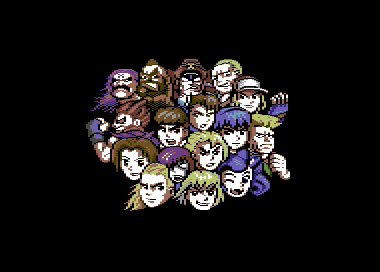
While not officially the first MMORPG, *Everquest* is widely recognized as the title that truly popularized the genre. In his book, Matthew S. Smith explores the development of *Everquest*, the controversies it sparked, and the ways to experience it today. There’s more to it than you might expect.
To start, John Smedley is credited as the mastermind behind *Everquest*, though his journey began in an unexpected realm. Despite being a passionate fantasy gamer, he primarily developed sports games for Sony, especially as the PlayStation gained traction. After experiencing a demo of *War Wizard 2* by Brad McQuaid and Steve Clover, Smedley leveraged his influence to pivot them towards creating a new game—a contender to *Ultima Online*. It’s remarkable how *Everquest* emerged, given that it was somewhat off-brand for Sony.
Interestingly, *Everquest* wasn’t the first MMORPG. Though *Ultima Online* came earlier, its competitive nature and nearly unrestricted player-killing mechanics, which led to the notorious term “murder hobo,” contributed to its diminished legacy today. In contrast, *Everquest* offered a more cooperative multiplayer experience. This reflects the broader ethos of the game, which, like Kelsey Lewin’s *Animal Crossing* Boss Fight book, emphasizes social interaction over competition. The game drew inspiration from a diverse array of sources, including MUDs and the lesser-known tank game *Tanarus*.
Smith’s thoroughness shines through as he examines the often-irrational myths surrounding *Everquest*. He approaches stories—like the claim that it crashed internet services in San Diego or Jack Thompson’s assertions about its addictive gameplay—with skepticism. He’s particularly sympathetic to Elizabeth Woolley, whose tragic experience with her son’s gaming addiction prompted her to form a support group.
This book focuses on breadth over depth, offering a wide range of topics without delving deeply into any single one. Each of the eight chapters typically highlights different individuals or broader themes. For instance, while virtual economies existed before *Everquest*, its immense popularity and corporate reactions to in-game economies set it apart. The timeline of events covered also poses a unique journalistic challenge, as the early controversies tie directly to contemporary issues like NFTs and gacha games, operating under similar economic principles.
As the narrative unfolds, Smith touches on other games like *World of Warcraft* and *Star Wars Galaxies*, but gives less attention to *Everquest 2*, primarily due to its lower popularity. However, in a positive development, emulated servers for the original *Everquest* have reconciled with the corporate entities, which now view their quirks—like timed expansions—as flattering rather than infringing. Surprisingly, there are currently thirty-one expansions, with the latest released last December; the thirty-second is anticipated this December. If you’re eager to catch up on *Everquest* content, now is the time to start.
Related
Original article by www.oldschoolgamermagazine.com








